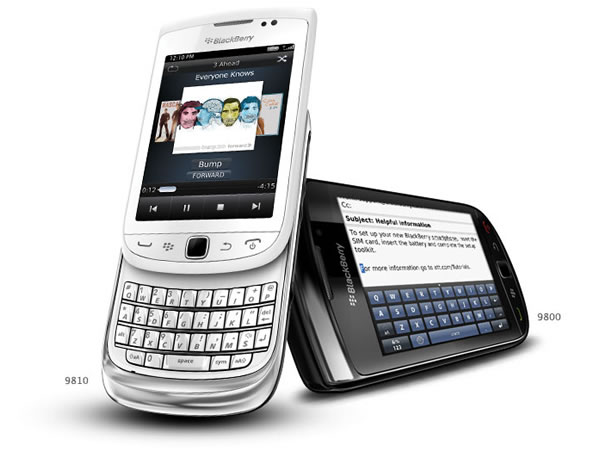For the past few days I've been playing around with a new BlackBerry OS 7 smartphone from Research In Motion. The BlackBerry Torch 9810 is the successor to the Torch 9800 that was released back in August 2010 to somewhat lukewarm reviews. Our own included.
The things that make the 2011 version of the Torch better than last year's attempt include a greatly improved display, twice the processing power, 50 percent more application RAM, and of course, the updates offered by BlackBerry OS 7. I'd even go so far as to say that I like the hardware design better, though it would be hard to pin me down as to why, since the phone can still be top-heavy when slid opened, and the keyboard appears very similar to that found on the original.
While I was not a fan of the 9800 variant, I'm pleased to say the new Torch 9810 is quite a bit better. There are still problems, and there are some tradeoffs, but by and large, I found the phone to be solid and think that there is yet a large consumer demographic that will find it an attractive device.
Let's get back to the display. Running at 480 x 640 pixel resolution (VGA), the new 3.2-inch touchscreen on the 9810 offers four times the resolution of the original Torch 9800. That is very, very noticeable, and combines well with BlackBerry OS 7's Liquid Graphics engine to provide slick looking, smooth moving graphics. The 1.2GHz processor also helps with the overall user experience, loading apps quickly and animating the images on the display with speed.

However the speedy processor is still not enough to prevent long lags when certain background tasks, such as downloading and installing a new application, are running. When such things occur, the phone can be very difficult to work with and is best left to sit quietly until the resource-hungry task is finished. Not having a 9800 to compare with the 9810 side by side, it's hard to say how much of a benefit the additional 256MB of RAM makes (768MB total), but experience on most every type of computing device tells us that more is almost always better.
With a full version number jump from 6 to 7 in the OS department, one wouldn't be out of line to expect major differences in the OS from a user's experience. They might be surprised, though, as BB OS 7 feels and looks, new screen excluded, very much like the old system. Things appear to have been tightened up a bit, and the overall look has improved, but it is still very much the old BlackBerry system with the new integrated menu on the home screen that we saw in last year's edition.
The 1270mAh battery in the 9810 is rated for approximately 6 hours of 2G/3G talk time or 12 days of 2G/3G standby time. It would appear to me, at least, that the faster processor and larger display are taking their toll on the battery, as the 9810 doesn't seem to have the battery life that I have come to expect from a BlackBerry. It's still worlds better than Android, from what I can tell, but I've charged this device more times that I would have expected over the past few days.

RIM claims that the BB OS 7 browser is 40 percent faster than the one found in version 6, but it's a bit hard to tell. As is the case with other BlackBerry smartphones, RIM's network is a choke point for all data. Even Wi-Fi connections still travel through RIM's servers, and that always seems to slow down high-speed data connections, though it offers speed benefits (through compression) on low-speed 2G connections. Add to that the fact that the browser doesn't support Adobe Flash, and you end up with a merely acceptable experience. HTML5 video is supported, though, which is nice.
The Torch is a fine device for messaging, and it even deals with Twitter and Facebook well. Social networks and IM channels can all be integrated into a single view of the Social Feeds app, which also supports RSS. Email support is great on the BlackBerry, though I still feel that RIM will have to offer direct Exchange support eventually. Gmail support for mail as well as contacts and calendar is built-in, but somewhat spotty. One of our three BB OS 7 devices wreaked havoc with our Google Calendar data.
In the end, I'm pretty pleased with the RIM BlackBerry Torch 9810. It's a good looking device that is easy to use in general. It's solidly constructed, has a nice display and keyboard, and will appeal to the BlackBerry set. It will not, however, draw away customers from other platforms. It still feels somewhat dated, even though it looks modern.
Michael Oryl is the Philadelphia-based owner and editor-in-chief of MobileBurn.com. MobileBurn focuses on cell phones, smartphones, tablets, and related hardware. Republished with permission.
